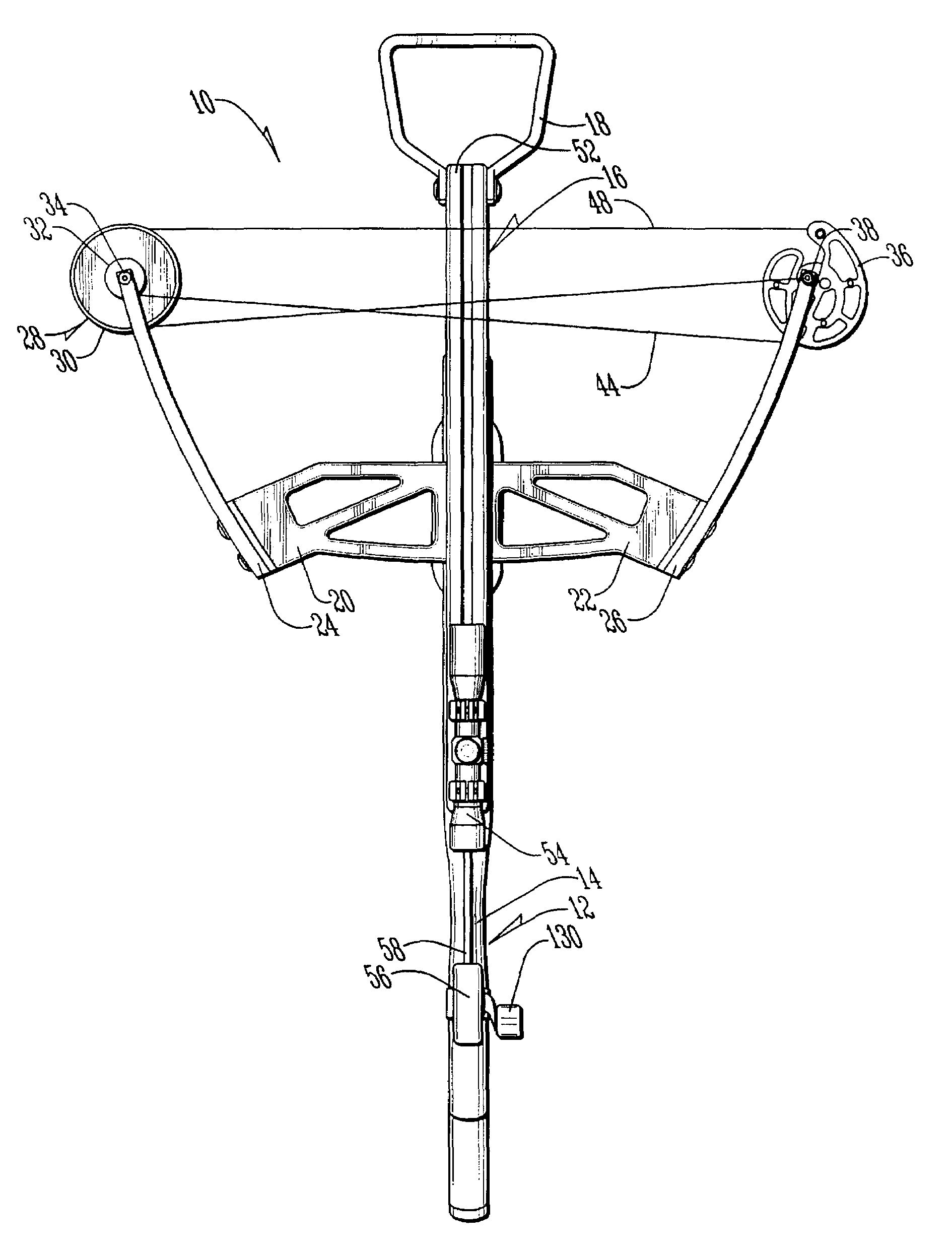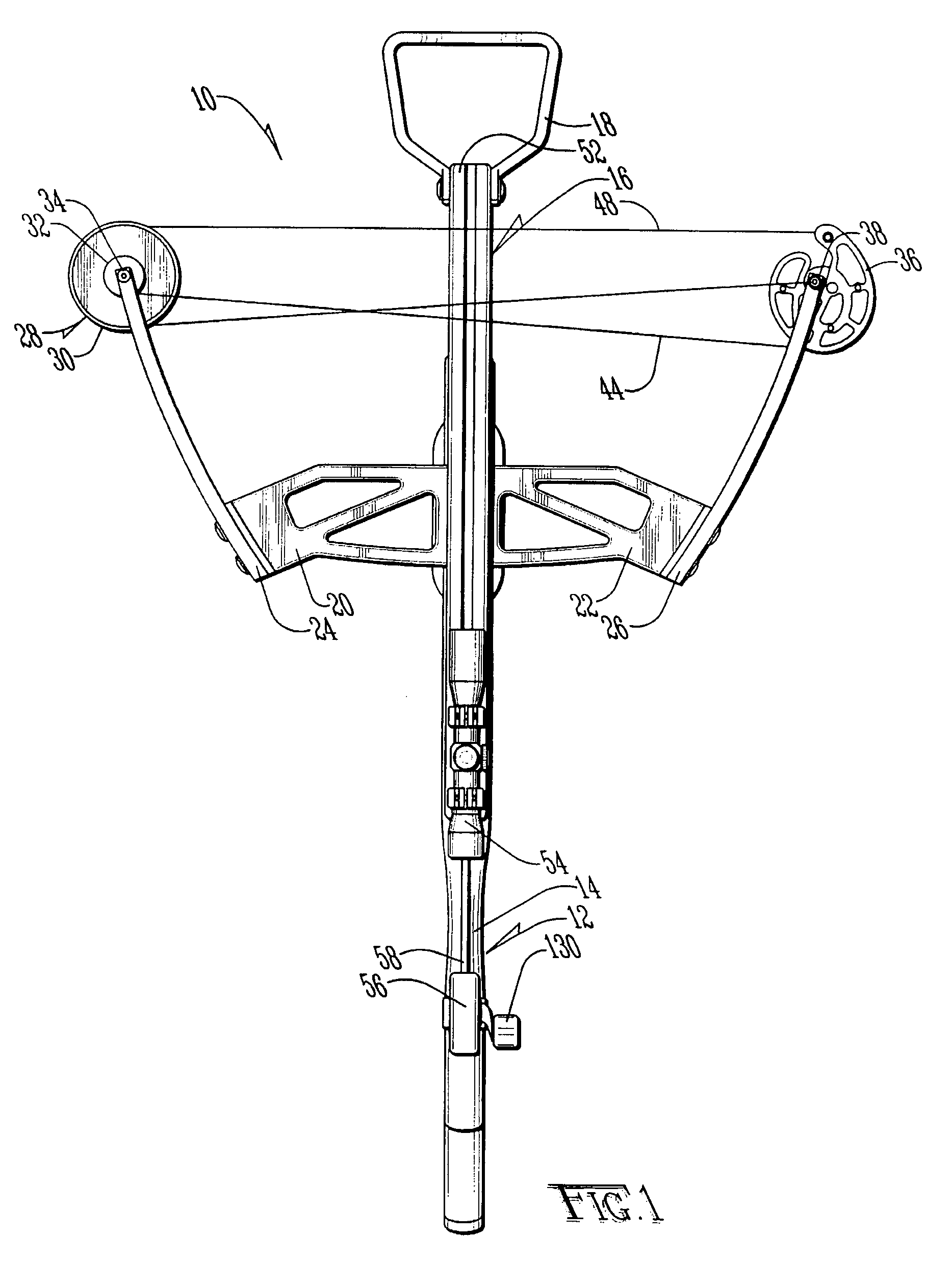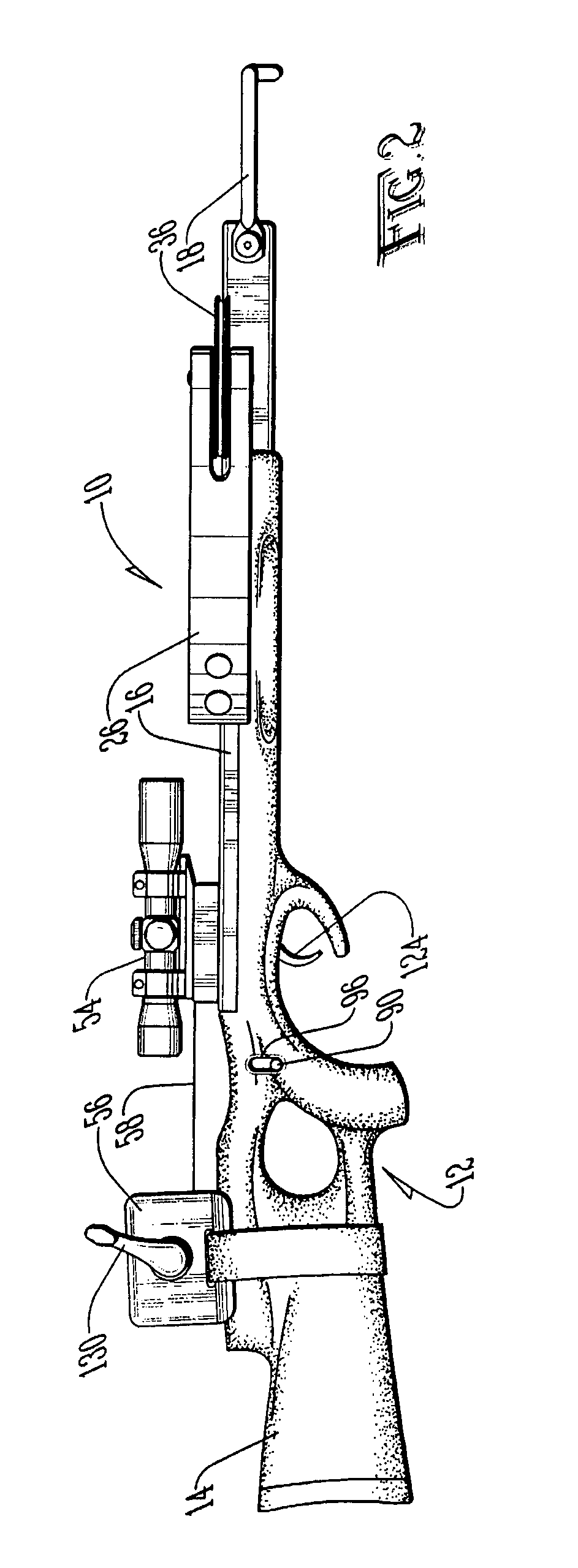Crossbow
a crossbow and crossbow technology, applied in the field of crossbows, can solve the problems of sacrificing speed, synchronizing the cam, and reducing the draw length of the crossbow, and achieve the effect of simple manufacturing
- Summary
- Abstract
- Description
- Claims
- Application Information
AI Technical Summary
Benefits of technology
Problems solved by technology
Method used
Image
Examples
Embodiment Construction
[0030]A crossbow according to the present invention is shown generally as (10) in FIG. 1. As shown in FIGS. 1 and 2, the crossbow (10) is provided with a frame (12) which includes a stock (14) and a rail (16). Although the stock (14) and rail (16) may be of any type known in the art, in the preferred embodiment the stock (14) is of a composite material construction, and the rail (16) is constructed of aluminum. Alternatively, the crossbow (10) may be of a “railless” design, such as those known in the art.
[0031]The crossbow (10) is provided with a pivotable foot stirrup (18) to facilitate cocking of the crossbow (10). As shown in FIG. 1, the crossbow (10) is also provided with a pair of risers (20) and (22) secured to the rail (16). The risers (20) and (22) are preferably constructed of aluminum to reduce weight. Coupled to the risers (20) and (22) are limbs (24) and (26). The limbs (24) and (26) are constructed and coupled to the risers (20) and (22) in a manner such as that known i...
PUM
 Login to View More
Login to View More Abstract
Description
Claims
Application Information
 Login to View More
Login to View More - R&D
- Intellectual Property
- Life Sciences
- Materials
- Tech Scout
- Unparalleled Data Quality
- Higher Quality Content
- 60% Fewer Hallucinations
Browse by: Latest US Patents, China's latest patents, Technical Efficacy Thesaurus, Application Domain, Technology Topic, Popular Technical Reports.
© 2025 PatSnap. All rights reserved.Legal|Privacy policy|Modern Slavery Act Transparency Statement|Sitemap|About US| Contact US: help@patsnap.com



